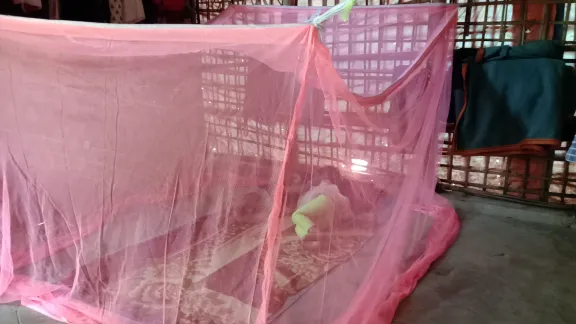
LWF distributed mosquito nets to more than 12,000 households in two camps in Cox'âs Bazaar refugee camp. The nets will protect especially small children against diseases such as Dengue fever and Malaria. Photo: Bela Wadud/ RDRS/LREP
Livelihood support and protection against diseases
(LWI) - In October 2017, violence in Myanmar forced over 700,000 Rohingya to flee to neighboring Bangladesh. They found a temporary home in Cox’s Bazaar refugee camp, one of the largest refugee camps worldwide.
The Lutheran World Federation (LWF) in 2017 started an emergency operation through its former country program, RDRS Bangladesh. They provided emergency relief items in the initial response then moved to recovery programs, which benefitted both refugees and host communities including improved water, sanitation and hygiene (WASH), reproductive health, nutrition, livelihoods and environment protection.
The team of LWF’s partner RDRS shared images of the work which they have been doing during the past year, and the people who benefitted from their support.
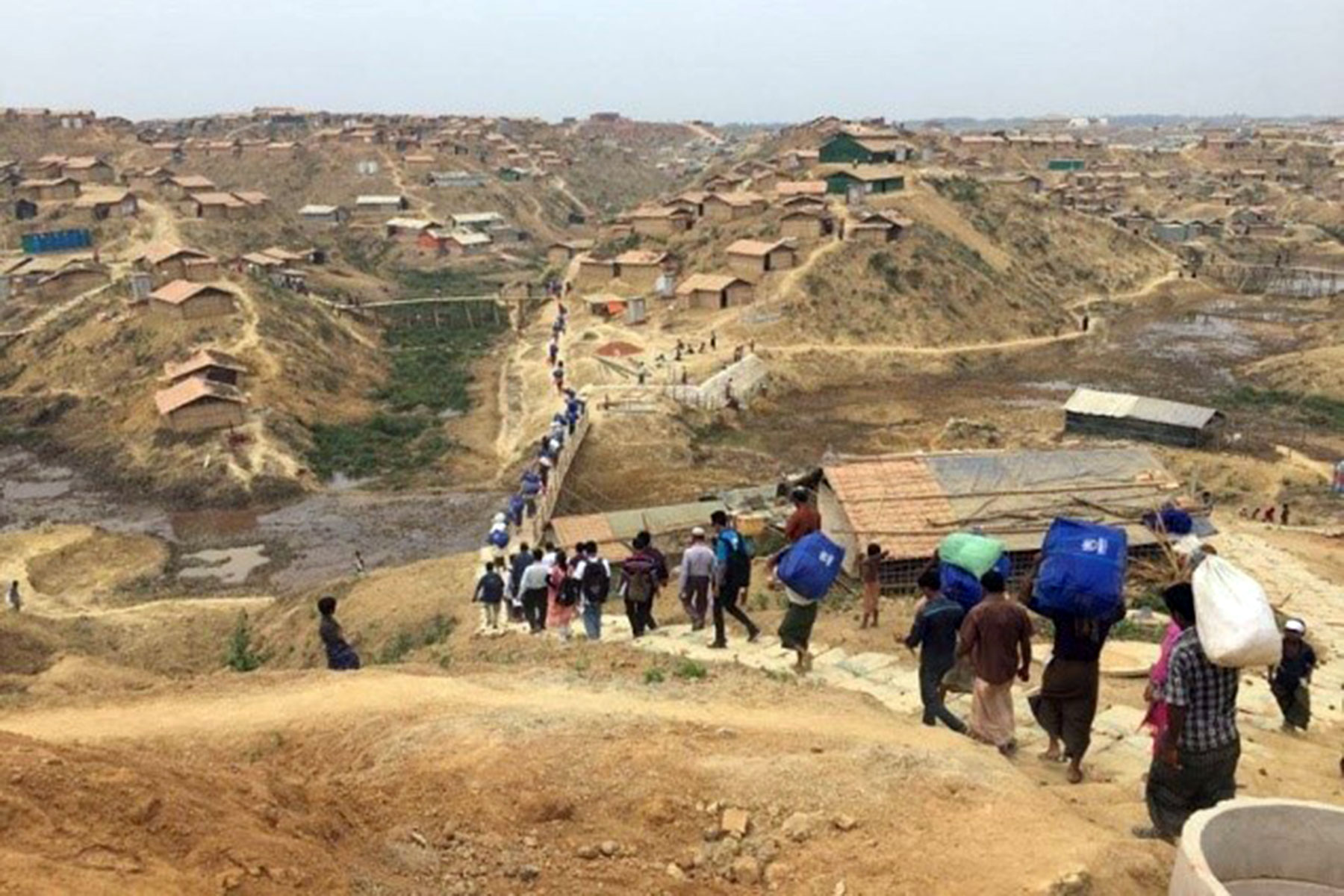
LWF has been planting trees in the Rohingya camp and nearby host communities since the beginning of its project work in 2019. Initially, the site was a forest, which was cleared in 2017 to accommodate the many refugees fleeing to Bangladesh. The deforestation caused landslides, extreme heat, and the depletion of water sources.
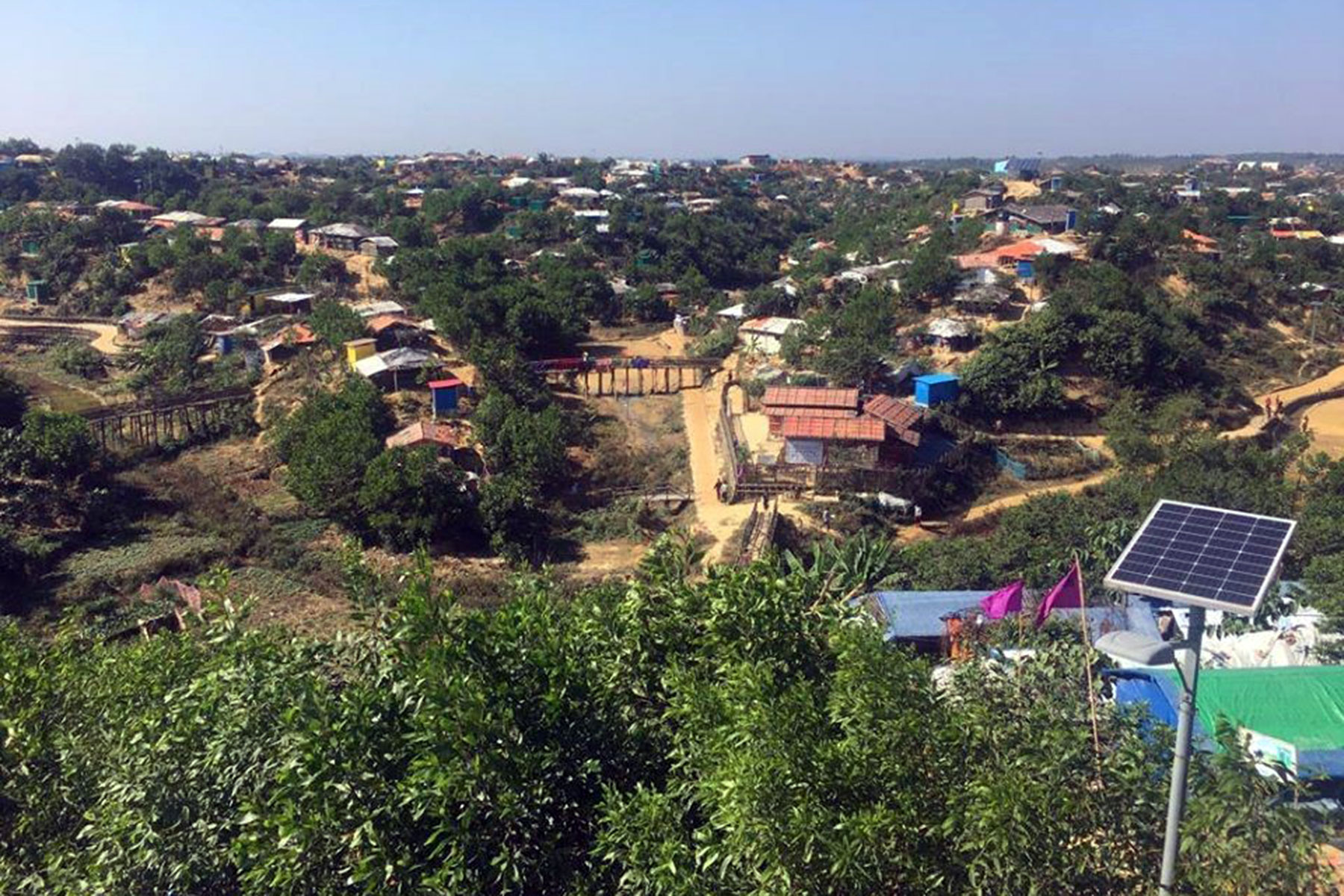
In the past two years, LWF through RDRS Bangladesh planted more than 50,000 trees. Some of the fast-growing varieties also have medical use, providing people with a base for homemade remedies for some common illnesses.
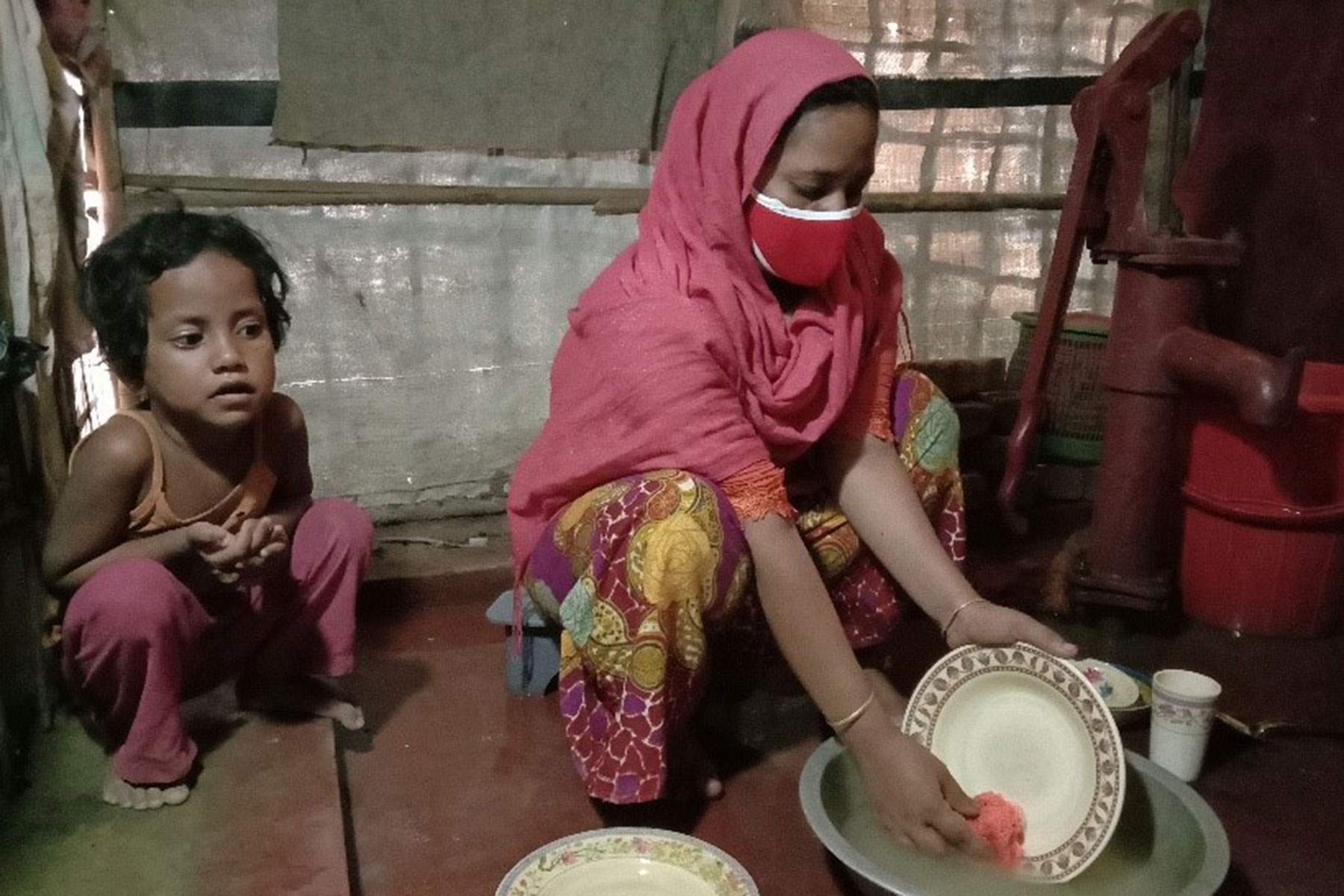
“The hygiene supplies we received earlier are not enough for my family of eight. Very often, we have to take a shower without soap, and wash our clothes with water only and without detergent. For two weeks every month, we wash our dishes with ash and straw, because the soap and sponge are used up. The hygiene kits we received from RDRS Bangladesh will fill the gap,” said Sofura Begum, a refugee(photo).
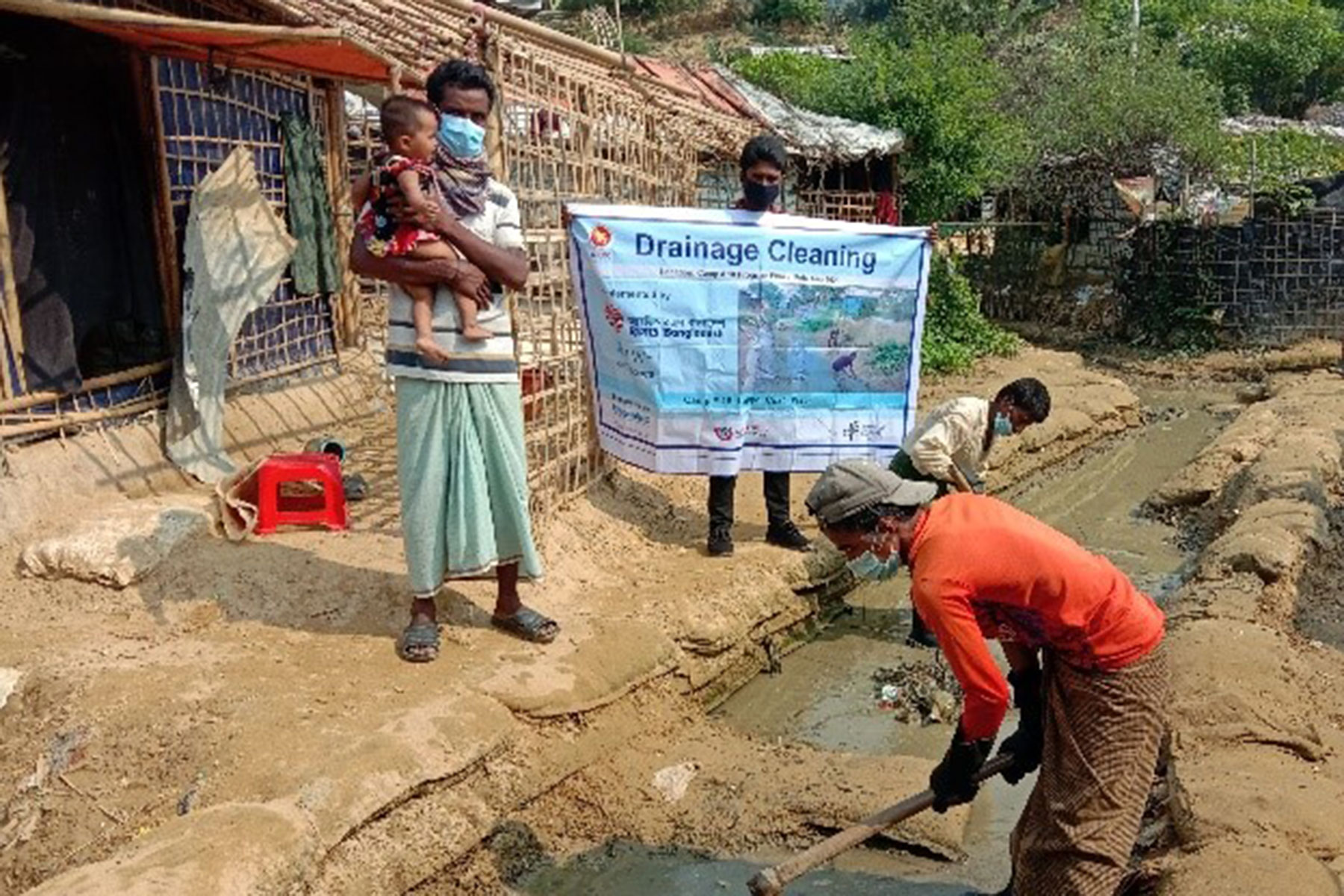
“There is a drainage right behind my house. During monsoon, the drainage line overflows due to clogging, and wastewater enters my house. RDRS Bangladesh supported the cleaning of these drains which from now on will keep my family, especially my children, safe from the dirty water and the diseases it brings,” said Abdul Malek (image).
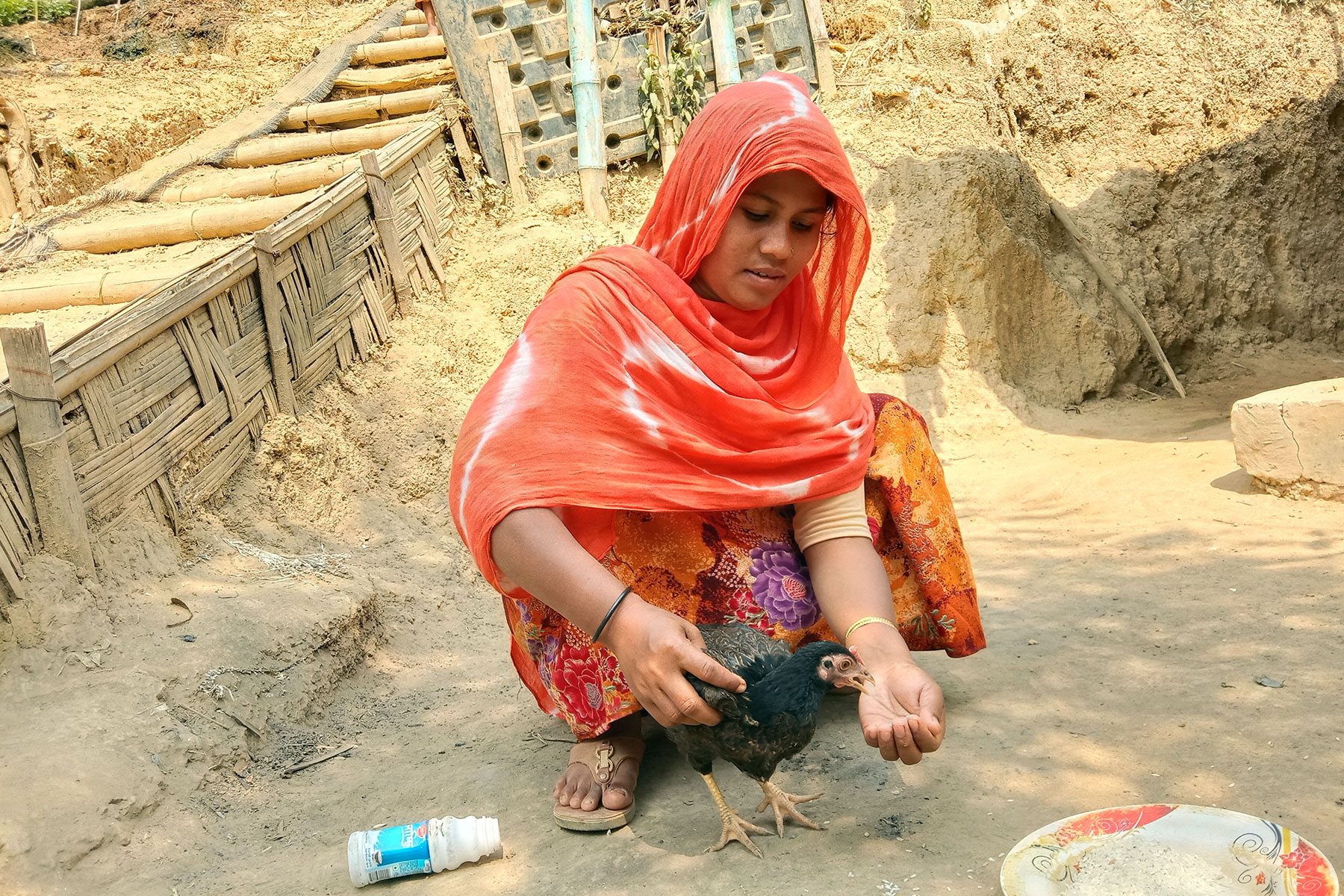
Cash for work schemes are a common way to provide people with employment and income. For single mothers and people living with disabilities however, opportunities are very limited. LWD/ RDRS in Bangladesh distributed poultry to women-headed households and persons with disabilities, to provide a home-based source of income. At the same time, having chicken and eggs at home improves the diet for the family. LWF also distributed additional food such as milk powder, seasonal fruit and sugar to nursing mothers. Photo: Bela Wadud, RDRS/LREP
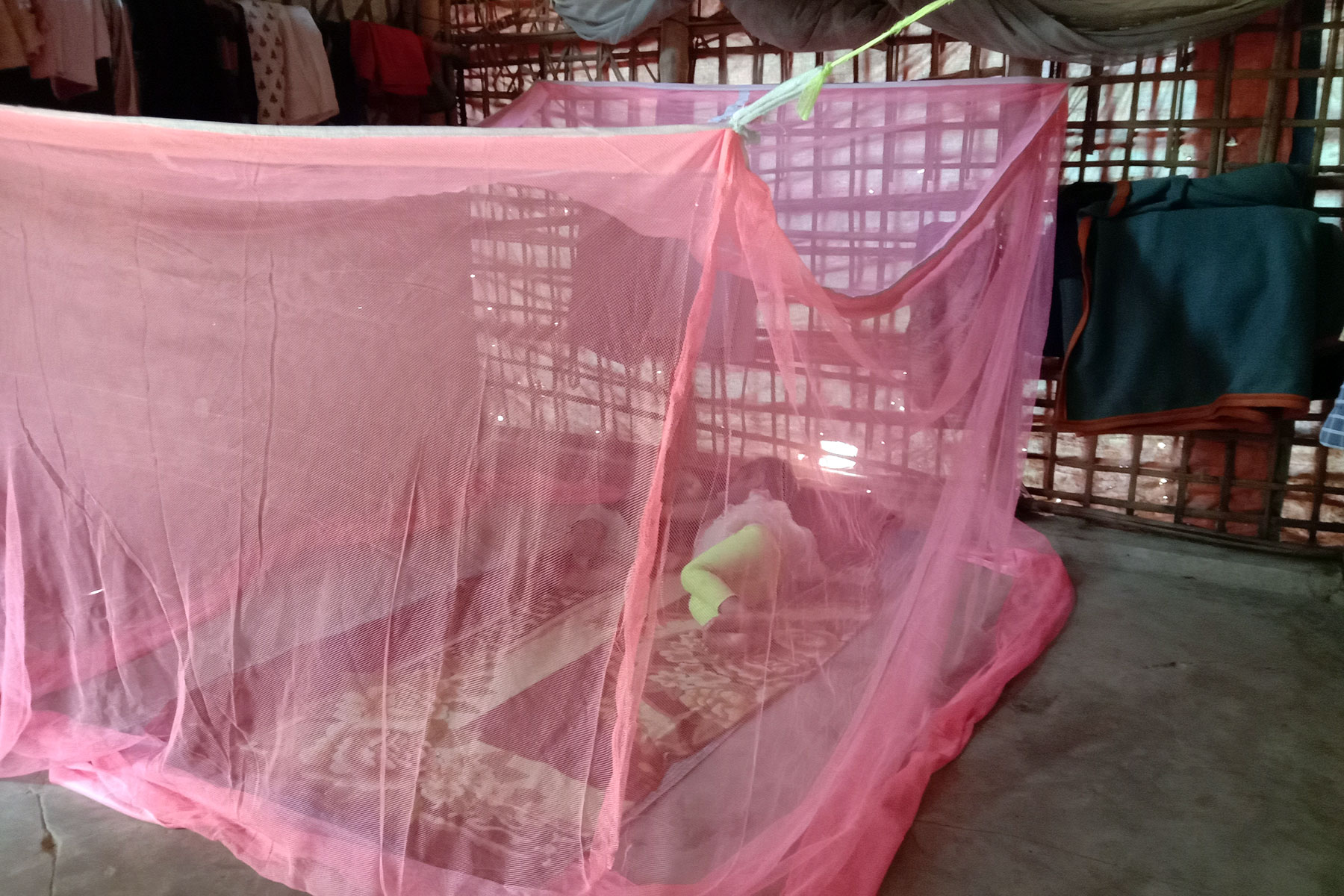
Mosquitoes are a big concern in the camp. The site is overcrowded, standing water during monsoon makes it easy for the insects to breed. Mosquitoes are known for spreading diseases like Dengue and malaria, especially to children.
LWF distributed mosquito nets to almost 12,000 households in two of the camps. Each household will from now on receive one mosquito net per year. “I can be assured that my children will be safe from Dengue and can sleep well at night from now on”, says Hasina Begum, a mother. Photo: Bela Wadud, RDRS/LREP
LWF/B. Khanal. Edited by LWF/ C. Kästner
LWF’s work in Bangladesh is implemented through RDRS Bangladesh, and funded by the following partners: Australian Lutheran World Service, Czech Republic Humanitarian Aid, Czech Diaconia, ACTAlliance.


